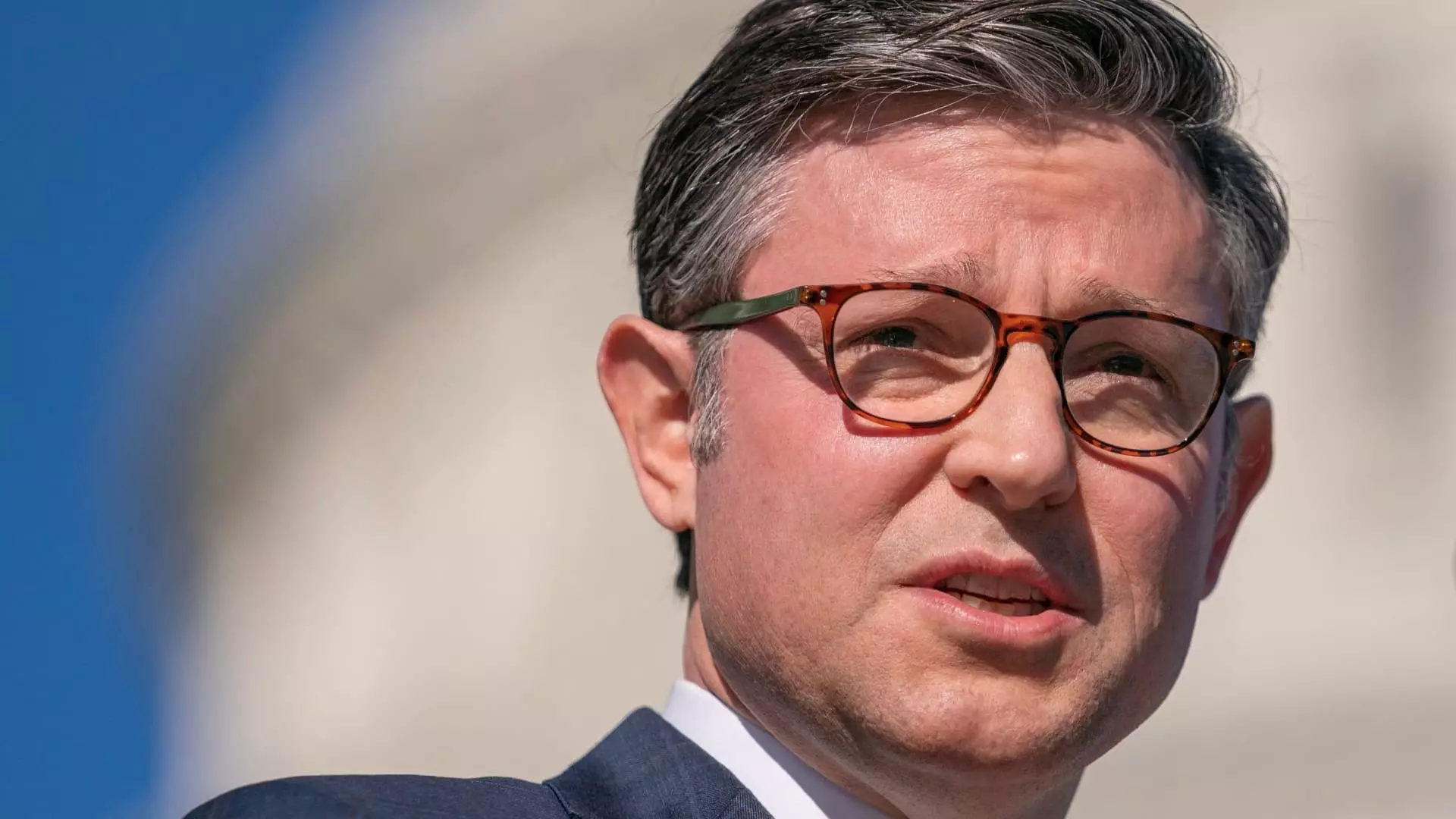In the politically charged atmosphere of Washington, D.C., the intersection of ethics investigations and political appointments can create tumultuous debates. Recently, House Speaker Mike Johnson addressed the implications surrounding the investigation of former Congressman Matt Gaetz by the House Ethics Committee. Johnson’s commentary highlights vital issues related to accountability, due process, and the broader implications of ethics investigations on political figures.
Matt Gaetz, a once-prominent member of the U.S. House of Representatives, has been embroiled in a series of scandals that have cast a long shadow over his political career. Allegations of sexual misconduct, including troubling accusations involving a minor, have raised serious questions about Gaetz’s fitness for public office. Notably, these allegations led to a federal investigation that concluded without charges, which adds a layer of complexity to his ongoing scrutiny. Gaetz’s abrupt resignation from Congress, just before the release of an Ethics Committee report, has only intensified speculation about potential misconduct and what the findings might reveal.
Speaker Johnson has labeled the Ethics Committee’s probe a “Pandora’s box,” suggesting that the implications of the report could reach far beyond its intended scope, especially since Gaetz is no longer a sitting member of Congress. Johnson argues that the Committee’s resources should not target private citizens, insinuating that once an individual exits Congress, they should no longer be subjected to the Committee’s scrutiny. This position raises pertinent questions about the ethical responsibilities of Congress, particularly whether former members should be exempt from investigation.
Moreover, Johnson emphasizes the incomplete nature of the Ethics Committee’s investigation, stating that the report remains in a “rough draft” state. This brings into focus the issue of transparency within legislative ethics investigations and whether or not such reports should be shared with the public, especially given the gravity of the allegations against Gaetz.
Johnson’s comments suggest a belief that the Senate should independently assess Gaetz’s qualifications for the position of U.S. Attorney General without relying on the incomplete findings of the House Ethics Committee. He firmly believes that the Senate holds a constitutional duty to provide advice and consent, implying that a thorough vetting process should suffice to determine an appointee’s qualifications. This stance reflects a growing sentiment in some political circles that the Ethics Committee may overstep its bounds, though it also raises concerns about accountability for past actions of public figures.
Contrastingly, some Senate Republicans, including Senator Markwayne Mullin, advocate for the release of the Ethics Committee report. Mullin insists on a fair evaluation process that allows for all nominees, including controversial figures like Gaetz, to be judged on their merits. This dichotomy illustrates the varying philosophies within the Republican party regarding ethics, accountability, and the implications of past behavior on one’s political future.
The ongoing saga surrounding Matt Gaetz is emblematic of larger issues within American politics concerning ethics, accountability, and the standards to which elected officials are held. As society grapples with the implications of misconduct allegations, it is crucial to examine how these issues shape public trust in governmental institutions. The handling of Gaetz’s case has prompted discussions about the rigorousness of the vetting processes for high-level appointments and the impact of historical allegations on current political dynamics.
As this situation unfolds, both the ethical standards imposed by legislative bodies and the resultant political fallout will be closely scrutinized. The question of whether ethics investigations serve as valuable accountability mechanisms or if they can be weaponized for political gain remains central to the discourse. With Gaetz’s future uncertain, and as memories of past allegations linger, the ramifications of this investigation will likely influence both sides of the political aisle.
The case of Matt Gaetz serves as a critical touchstone in the ongoing debate about ethics and accountability in politics. It challenges lawmakers to navigate the murky waters of oversight while considering the moral implications of their decisions in a system that is increasingly scrutinized by an engaged electorate.

Leave a Reply